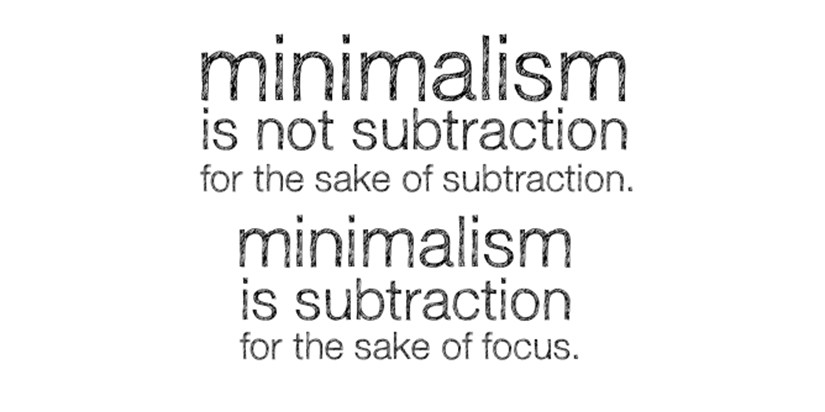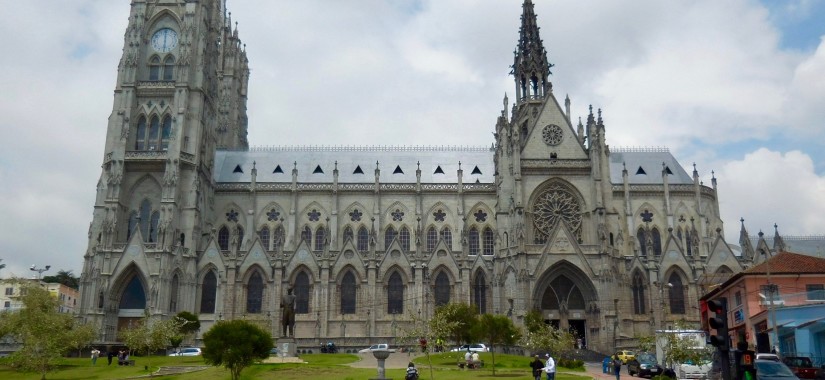Why I’m Passionate About Minimalism
I Was a Hoarder
I wasn’t always a minimalist; like so many others in the USA, I hoarded stuff and filled my life with things—both the physical variety of consumer items purchased from Amazon and delivered right to my doorstep, as well as the time sucking variation, those that occupied hours of each day (Netflix, Warcraft, clubs, social events, church, etc.). My life was full, over-full, with activities scheduled back-to-back after work and on weekends. I had been told, and believed, this was the American dream, the way it is done, the path we are told leads to happiness: graduate from a university, land a corporate salary job with great health and retirement benefits, work your way through the ranks, get married, have two kids, own big house with 30 year mortgage surrounded by a white picket fence. In the USA, many of us are told this is “happiness.” But, does it really? Perhaps life isn’t a one-size-fits-all path to utopia. Maybe the path is individualistic and not a “one-size-fits-all.”
The Unplanned Minimalist
I didn’t plan to be a minimalist; it wasn’t even on the horizon of thought for me. I wasn’t seeking some sort of self-improvement. I became a minimalist as a direct by-product of long-term travel. You see, it is practically impossible to travel long-term without becoming a minimalist. The two, as many will tell you, go hand-in-hand. You see, when you start traveling long-term for the very first time, you try to plan for every possible situation: summer socks for when it’s hot, winter socks for when it’s cold, gloves, extra batteries, a shirt and tie (just in case). However, after three or four months of lugging around that shirt and tie, never wearing it once, you began to question things. Why am I carrying a shirt and tie while living on beaches in Peru or doing walking tours of Berlin street art? Why do I have four pairs of shoes with me? The “just in case” type of thinking just doesn’t work well for long-term travel. It doesn’t take long before you start shedding belongings, downsizing, and discovering how little you actually need in order to optimize the travel experience. As each item is discarded, weight and burdens (both literal and metaphorical) are released and happiness bubbles to the surface as your life is simplified. It is an amazing transformation which is hard to describe until you experience it.
Benefits of Minimalism
In short, minimalism is about removing non-essential things (and events) from your life so that you are left only with high quality things or events which are meaningful or bring you joy. Instead of owning 10 pairs of shoes you like or are just ok with, as a minimalist, you would own one or two pairs that you absolutely love. Instead of twenty shirts in the closet, you might own handful of super high quality shirts which have been taylor fit for your comfort. Minimalism is about owning less, but what you do own is only the things you use on a regular basis and only things of the highest quality which bring you the most joy. The same principle is applied to how you spend your time. Time spent watching TV, running from club events to various social engagements might be replaced by a world-tour, or taking language classes or simply spending quality time with family. Some call this “bucket list” thinking named after the famous movie where two old men drop everything to pursue their list of things they want to do before they die. As we remove the clutter from our schedules, we engage only in the highest quality and most meaningful activities we can think of. Minimalist is really about doing less, but participating only in meaningful activities or passions which bring us immense happiness. We only own things which enhance our lives and are easy and simple to maintain. All essential things are put aside so that we can focus on rich experiences.
My Intentional Lifestyle
I have spent the last several years intentionally pruning, crafting, and molding my life. I have removed 97% of my possessions by selling or donating these items. Minimalism isn’t just about reducing the amount of stuff you own, it is also about reducing the types of activities you participate in to just those you are passionate about (or are necessary for survival). I removed as much as possible from my scheduled activities to only those I was truly enjoy or were absolutely necessary in order to live. I reduced my workload from 40 hours a week down to the bare minimum to meet my contractual agreements (currently I have contracts to work four hours a week which ironically is the title of a book that helped get me started). Where do I spend my time? Right now I’m passionate about travel, exploration, and minimalism. I spend my time and efforts pursuing these passions. All these, in my opinion, equal FREEDOM. I have freedom to pursue my passions, loves, and interests. Minimalism is a key part of what makes my lifestyle possible by removing distractions and roadblocks which would prevent me from doing what I love.



